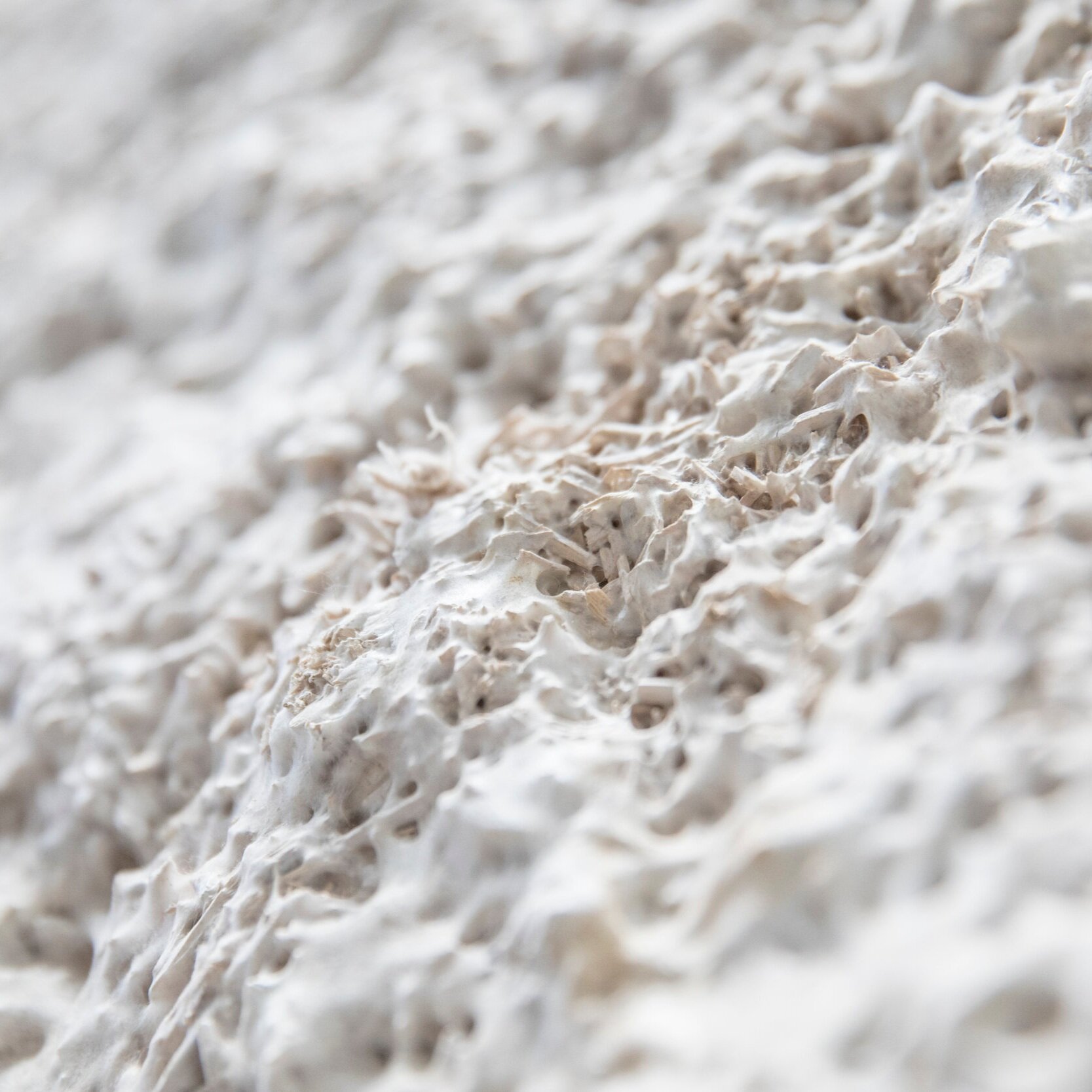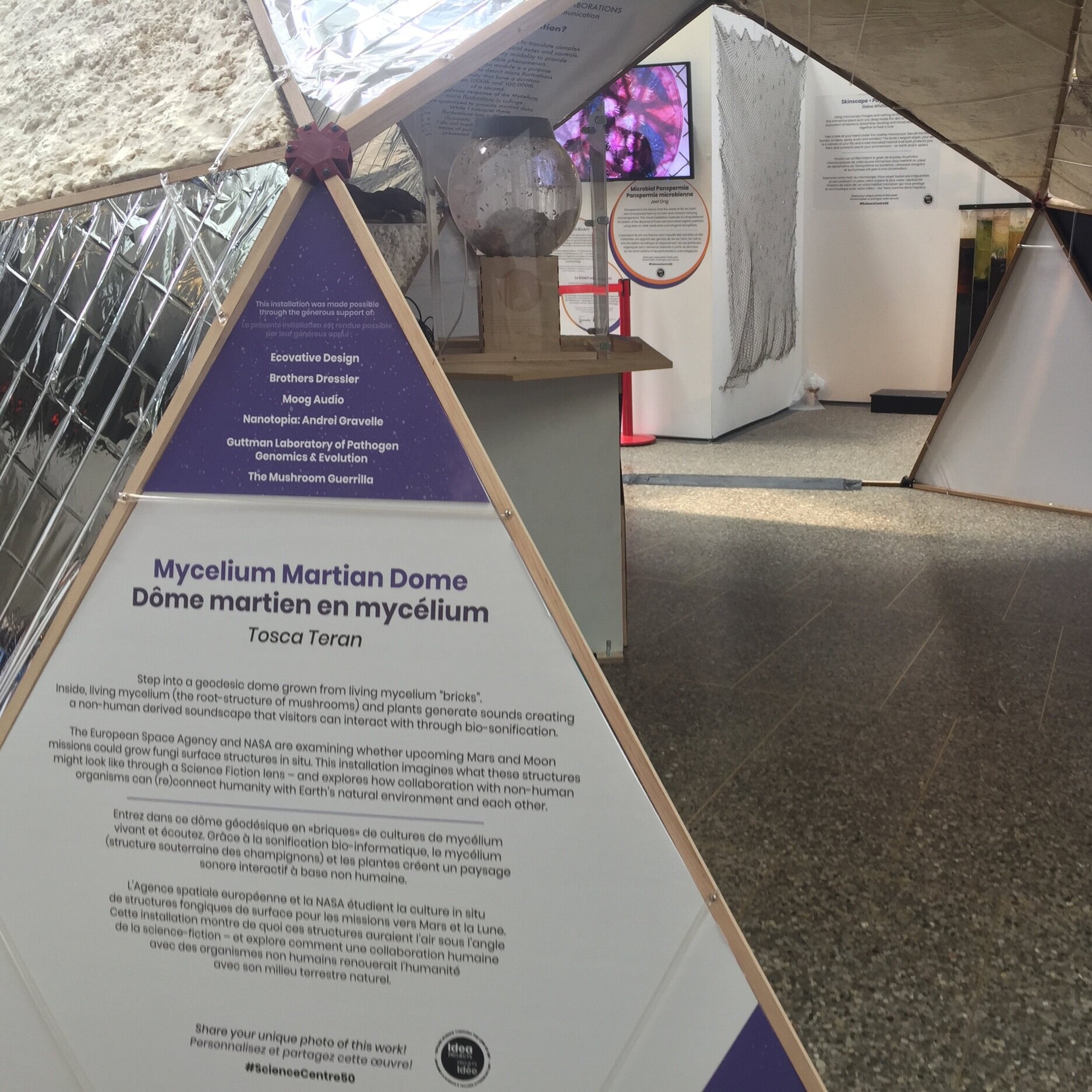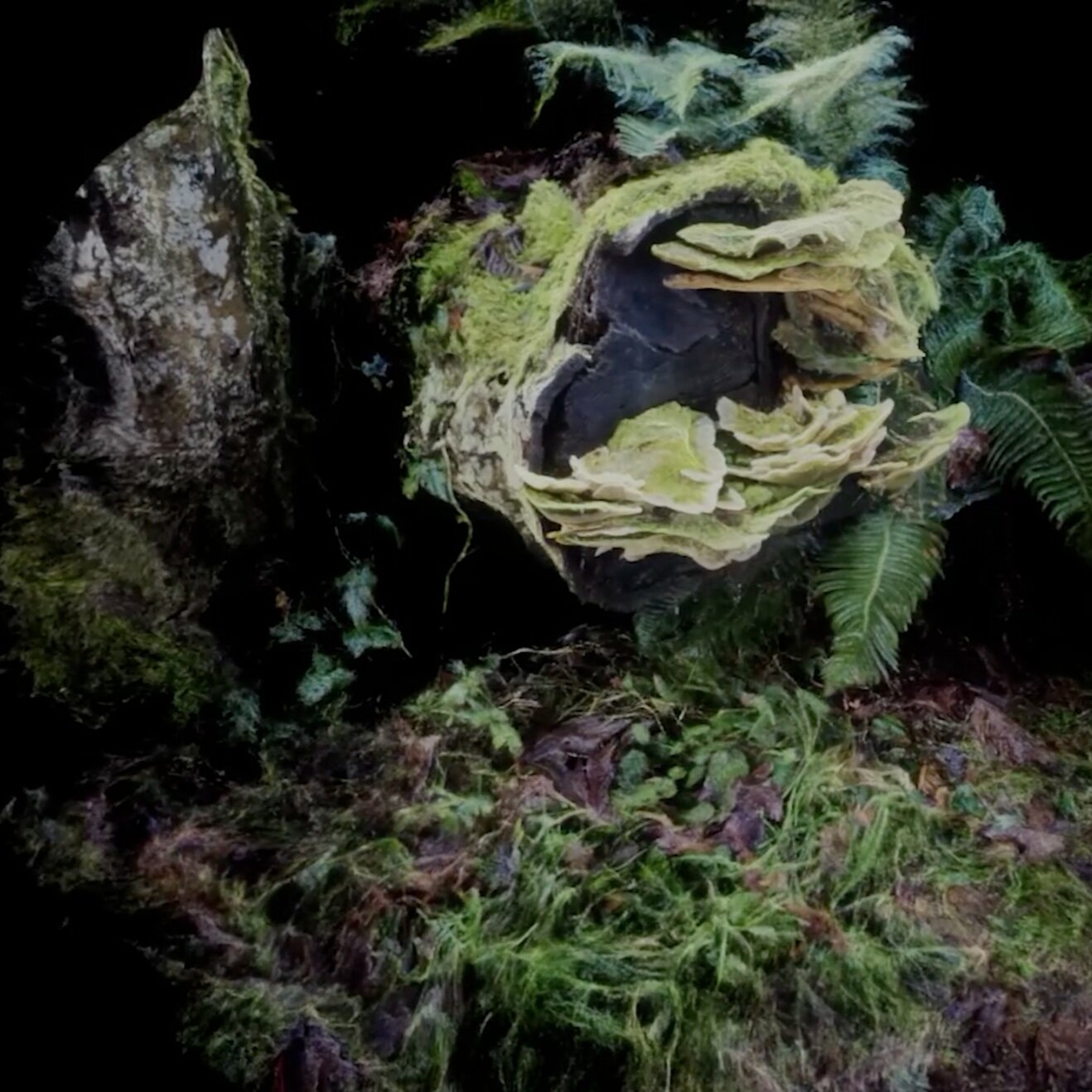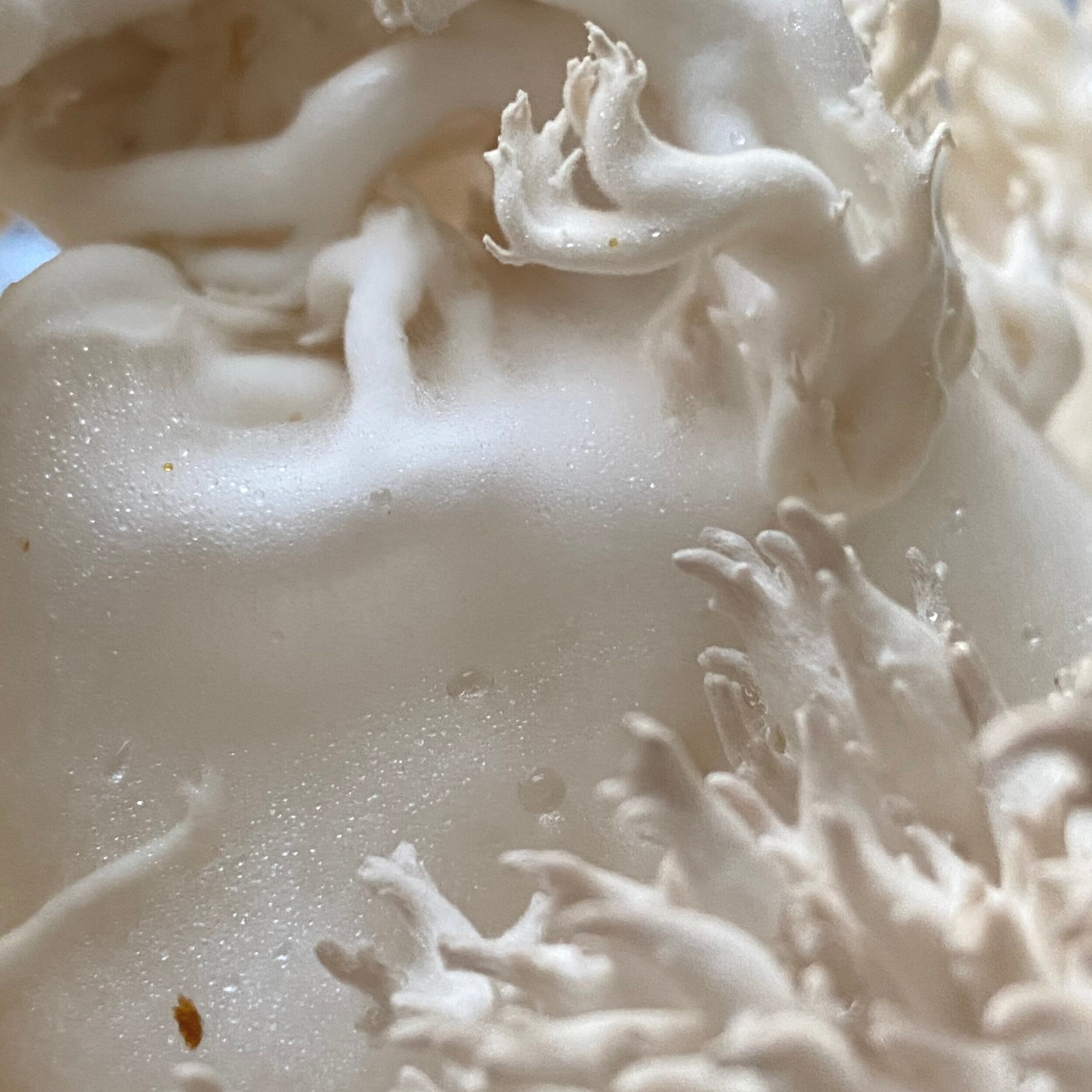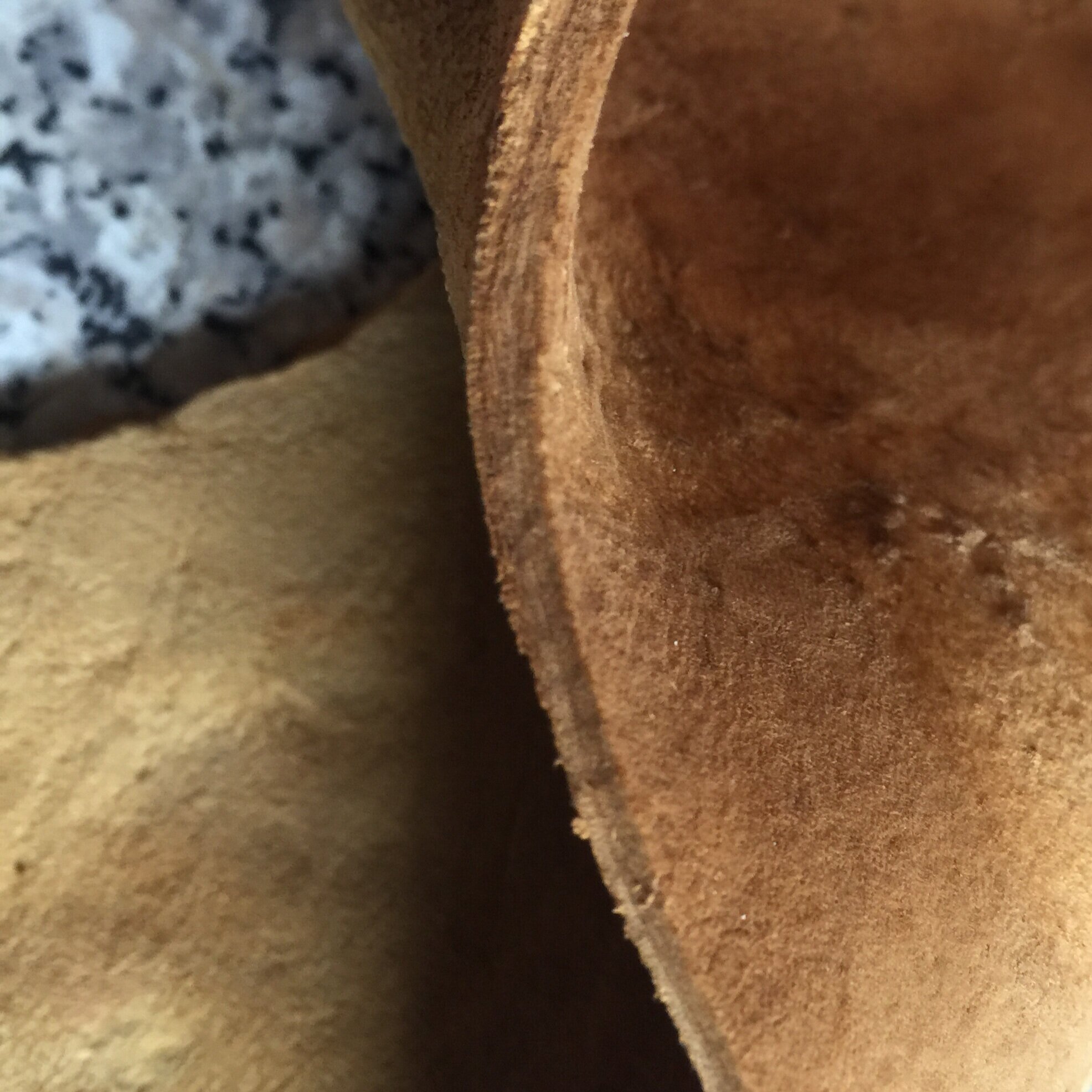Tosca Terán
Tosca Terán describes herself as a Latinx-feminist and bio-artist exploring the intersections between art, biology and technology. Terán was raised in California by two imaginative parents: her mother was a jack-of-all-trades, with interests in sewing, ceramics, toy-making and horticulture, and her father an “audiophile,” with a contagious interest in sound. Fascinated by the world around her from a young age, she had always been encouraged to make use of the wonders within her imagination. Drawing influence from her parents, Terán’s work reflects her unconventionally eclectic and diverse upbringing.
Tosca Terán, Testing touch-plates & electrodes, for Angophra costata bio-sonification, various synthesizers October 2019 PHOTO: GRAEME WIENAND
Terán lived in Taos, New Mexico, before she relocated to Toronto in 2001. She initially worked out of a shared studio space in the Distillery District until 2005, when she opened her own studio and retail space: nanopod: Hybrid Studio on Harbord Street. There, she continued her work with glass, ceramics and a variety of metals such as steel and sterling silver. Glass requires a significant amount of resources to produce and a great deal of capital to afford. Metal, Terán says, had been much easier to recycle in New Mexico, whether she melted it down and reused it, or traded it.
“My work since living in Canada has grown more ecologically minded, feminist bent (though, perhaps occult). Considering how humanity impacts the shared environment. How society is an invasive species, some perhaps more than others. There have been moments, too, where I’ve embraced more of my Latinx roots and explored how religion, in my opinion, can infect, corrupt and destroy beauty.”
Tosca Terán, Symbiosis/Dysbiosis immersive, mixed reality experience, in VR environment shot. Point cloud data scanned from Canadian coastal rainforests connected to living mycelium which is reacting to Human touch and effecting the point cloud visual. Current project (wip). PHOTOGRAMMETRY COLLECTED/ SCANNED BY ALLISON MOORE
The scope of work throughout Terán’s career is quite vast, encompassing jewellery design, film, painting, sculpture and metalsmithing: “I’ve never had the sense that I was working within the constraint of one medium. To invert McLuhan, sometimes the message is the medium.”
She lived close to a redwood forest as a child, and mushrooms were always close by. They’ve followed her into adult life, inspiring her work — like mushroom-shaped metal sculptures — until they became the material for it.
More recently, her work has shifted its focus onto fungus, delving into its potential as a structural medium as well as a sonant being. Fungal mycelium, the root-like part of fungus, intrigues her. She’s exploring its sculptural possibilities, and has found ways to work with it in a similar fashion to wood and leather. Her interest in fungal mycelium has made its way into sculpture, audio and other technological processes.
Terán’s acquired skills often come from an obsessive motivation to poke and prod foreign subject matters, as well as working and learning from apprenticeships with metalsmiths, jewellery designers, highly skilled glass artists, and many intensive workshops. Terán’s recent work consists of partnering her open source bio-sonification modules with fungal mycelium as well as other nonhuman organisms. These modules are able to detect micro-fluctuations in conductivity, emitted by the specimen, and then translate this information into MIDI (Musical Instrument Digital Interface) notes. The process of transferring electroconductive fluctuation into MIDI notes is what enables the creation of her fascinating melodies, translating into sound the lives of these organisms. Inspired by her father’s audio passions, Terán has compiled her work into a series called “Midnight Mushroom Music.”
“Artists, I believe in general, are interested in making the invisible visible. I am interested in other worlds, other languages, challenges, and bio-art ticks all of those boxes,” Téran says. “Bio-art is really more than that for me. We — all living organisms on Earth — are all connected in so many ways.”
In 2021, Terán’s installation the “Mycorrhizal Rhythm Machine” will be displayed at NAISA (New Adventures in Sound Art) installation space in South River, Ont. The exhibit houses fungi and various sprouts within a Space10 Growroom: a walk-in dome constructed, with the help of the Brothers Dressler furniture company, out of wooden shelves that act as planters. The installation creates a soundscape where sound equipment lives with and simultaneously translates the organisms’ biodata into sound. Terán has engineered an ecosystem between the acoustic technology, the space and the organisms.” As the organisms grow, so will the soundscape — facilitating a conversation between nature and machine. How physical and aural growth occurs is unpredictable, producing an enchanting composition.
Just as peculiar and exciting is Terán’s work in conjunction with virtual reality and user experience designer Sara Lisa Vogl, neuroscientist and media artist Brendan Lehman, and media artist Allison Moore. This team project, named “Symbiosis/Dysbiosis,” incorporates bio-sonification with augmented and virtual reality to create a mixed reality experience. This project — funded by the Goethe Institut’s New Nature Exchange — is a virtual environment where a boreal forest homes microbial and fungal organisms that react to participants in real time, all while the technology calculates the player’s impact on the forest as positive or negative repercussions.
Tosca Terán, Symbiosis/Dysbiosis, 2020 immersive, mixed reality experience, in VR test-subject/environment promo shot. DMG/TSV residency PHOTO/VIDEO CAPTURE: TOSCA TERÁN
While translating plant life into sound and song is a relatively new endeavour, Terán is the first to focus on fungal sonification. Her sonification work has in turn captured attention internationally, allowing Terán to present her work and teach her techniques in workshops in Australia, New Zealand and Iceland.
This article was published in the Spring/Summer 2021 issue of Studio Magazine.





